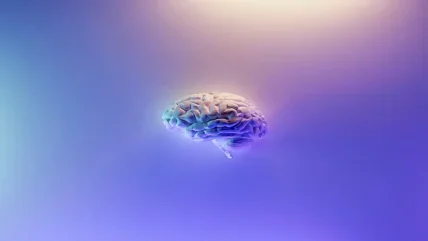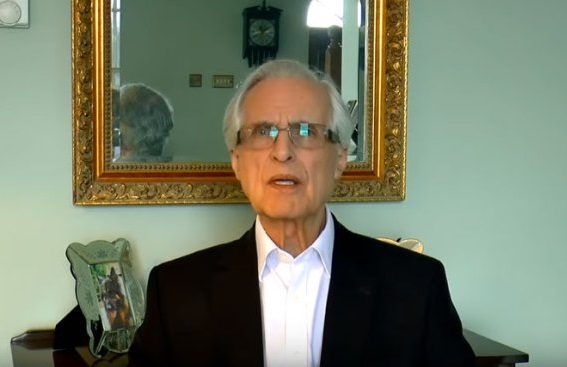
With its low relapse rate and fast-working relief for mental health problems, brain working recursive therapy could be the next big thing in treating depression, anxiety and PTSD. Jamie Bell takes a closer look what makes it a “spectacular” development in the field of healthcare, as well as clinical psychology.
Growing numbers of people experiencing depression, anxiety and other psychological conditions have led to reports of a mental health epidemic in the UK.
Mental health charity Mind says about one in four people will experience at least one of these conditions each year.
During the 2019 general election, the UK’s national parties focused heavily on the need to improve treatment and support for those living with mental health problems.
The unwanted side effects of some antidepressant drugs often lead people to seek out alternative treatments for these problems – with many turning to psychotherapy.
Here we take a look at one of the more recent developments in this space – brain working recursive therapy (BWRT) – which its inventor claims has the potential to revolutionise the field.
What is brain working recursive therapy?
BWRT is defined by Terence Watts – the leading therapist who developed it – as an approach grounded in science.
It uses natural psychological processes to recondition neural pathways in the brain that lead to unwanted behaviour.
By stopping and rerouting the brain’s natural response to anything traumatic or not understood in its tracks, BWRT can prevent the negative outward symptoms of conditions like depression and anxiety.
It uses no devices, advanced technologies or medication, but simply involves a patient and a therapist talking – like many other forms of therapy.
Watts believes that because many physical health problems are rooted in – or at least impacted by – psychological problems, BWRT can also be effective in coping with the symptoms of diabetes, multiple sclerosis, and a number of autoimmune diseases.
He says: “The purpose of BWRT is to give people the life they deserve, and that’s what it does.
“It’s about giving people contentment in their lives, and making them feel equal to others. BWRT does that better than any other therapy I’ve ever used.”
How effective is brain working recursive therapy?
Watts was primarily using hypnotherapy to treat mental health problems in 2011 when he starting piecing together BWRT.
However, once he realised its potential in the field of psychotherapy, he decided to devote his career solely to the more scientific approach – which included setting up the Terence Watts BWRT Institute, based in London.
Watts says: “I was an analytical therapist for 25 years, and having been in the profession for such a long time I can always recognise when something is spectacular, which BWRT certainly is.
“I can guarantee you could search for a year and you wouldn’t find anybody – who understands what it is – that says it’s ineffective, or has any real downsides.
“That’s why I’m still massively excited by it – I first taught it six years ago now and it’s still just as exciting as it was when I first taught it.”

As well as being effective in helping people with a wide variety of psychological problems – from depression and anxiety to obsessive compulsive disorder (OCD) and phobias – Watts says BWRT is extremely fast, often only taking one session to resolve these conditions.
He adds that it has been used to treat people with post-traumatic stress disorder (PTSD) in South Africa, where police officers and prison guards have returned to work after just one or two sessions of BWRT treatment.
However, while it is often referred to as a quick fix – which Watts says is accurate – it is not just a short-term solution as it produces a “very deep, permanent change in people”.
Watts says the relapse rate following BWRT treatment is very low, with more than 99% of patients who respond well to it requiring no follow-up sessions.
He adds: “Because it is so scientific and works to a strict structure, on the rare occasion someone does start to feel mental health symptoms coming back – following a successful first session – BWRT therapists can go back through the protocol and find out exactly where the problem lies, and why it didn’t work.”
How does BWRT compare to other therapy methods?
Eye movement desensitisation and reprocessing (EMDR) is an interactive psychotherapy treatment that involves the patient recalling distressing images and experiences in order to cope with conditions like PTSD and other traumas.
Watts says this method is very painful and difficult for the patient, however, as it means they have to confront and directly deal with their trauma.
The process of BWRT is less challenging for patients and doesn’t require them to “sit with” their pain.
Cognitive behavioural therapy (CBT) is another “talking therapy” that can help a patient manage their problems by changing the way they think and behave.
While Watts says there’s no doubt CBT works, he adds that it has quite a high relapse rate – one of the areas in which BWRT has proven to be especially effective.

Emotional freedom techniques (EFT) is a form of acupuncture using the fingertips to stimulate energy points on the body, and offers treatment for physical and emotional pain and disease.
Watts says EFT also works but is unconventional and often makes patients feel uncomfortable, while BWRT is much closer to what people would consider to be a normal appointment or conversation with a therapist.
Watts adds that while hypnotherapy – treating mental health problems with hypnosis – can be very effective too, it doesn’t work for everyone.
He says: “There is not a form of therapy in the world that works on every single person.
“While BWRT does not work on everyone, it works for a wider range of people than hypnotherapy ever could.”
Is brain working recursive therapy available on the NHS?
BWRT is already used by a handful of NHS psychologists in the UK to help treat a range of conditions, including PTSD and depression.
A 2017 study by the NHS Health Research Authority also stated that “the effectiveness and efficiency reported by therapists and patients are so far unanimously positive”.
However, Watts hopes BWRT will become more widely accepted in the taxpayer-funded health service over the next few years.
He adds: “I’d be amazed if it were not used more widely throughout the NHS in the future – once people get the chance to see how profound it is and how long-lasting it is.
BWRT is set to begin clinical trials in 2020 – a long process, but one which Watts hopes will see his psychotherapy method becoming more central to the treatment of mental health problems in the UK.





